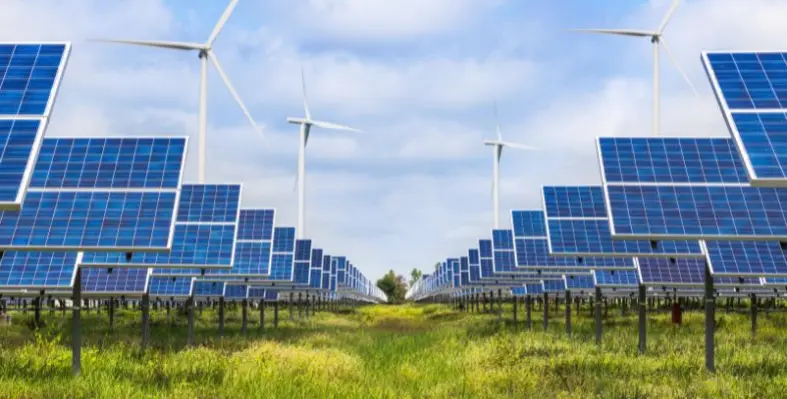A new report by the IEA shows that renewables, along with nuclear power are growing rapidly
The report found that while global growth in electricity demand eased slightly to 2.2% in 2023 due to falling electricity consumption in advanced economies, it is projected to accelerate to an average of 3.4% from 2024 through 2026.
About 85% of the increase in the world’s electricity demand through 2026 is expected to come from China, India and countries in Southeast Asia.
However, electricity generation from renewables such as solar, wind and hydro, as well as nuclear power – should reduce the role of fossil fuels in providing power for homes and businesses.
Low-emissions sources are expected to account for almost half of the world’s electricity generation by 2026, up from a share of just under 40% in 2023.
Renewables to overtake coal
Renewables are set to provide more than one-third of total electricity generation globally by early 2025, overtaking coal, the report found. The share of renewables in electricity generation is forecast to rise from 30% in 2023 to 37% in 2026, with the growth largely supported by the expansion of ever cheaper solar PV.
The growth of renewables, supported by rising nuclear generation, is set to displace global coal-fired generation, which is forecast to fall by an average of 1.7% annually through 2026.
The growth of nuclear energy in the Global South
Renewables are set to make up more than one-third of total electricity generation by early 2025, overtaking coal. By 2025, nuclear power generation is also forecast to reach an all-time high globally as output from France climbs, several plants in Japan come back online, and new reactors begin commercial operations in many markets, including in China, India, Korea and Europe.
When the share of fossil fuels in global generation falls beneath 60%, this will mark the first time it has gone below this threshold in IEA records dating back more than five decades.
“The power sector currently produces more CO2 emissions than any other in the world economy, so it’s encouraging that the rapid growth of renewables and a steady expansion of nuclear power are together on course to match all the increase in global electricity demand over the next three years,” said IEA's executive director Fatih Birol.
“This is largely thanks to the huge momentum behind renewables, with ever cheaper solar leading the way, and support from the important comeback of nuclear power, whose generation is set to reach a historic high by 2025. While more progress is needed, and fast, these are very promising trends.”
Global emissions from electricity generation are expected to decrease by 2.4% in 2024, followed by smaller declines in 2025 and 2026.
The decoupling of global electricity demand and emissions would be significant given the energy sector’s increasing electrification, with more consumers using technologies such as electric vehicles and heat pumps.








